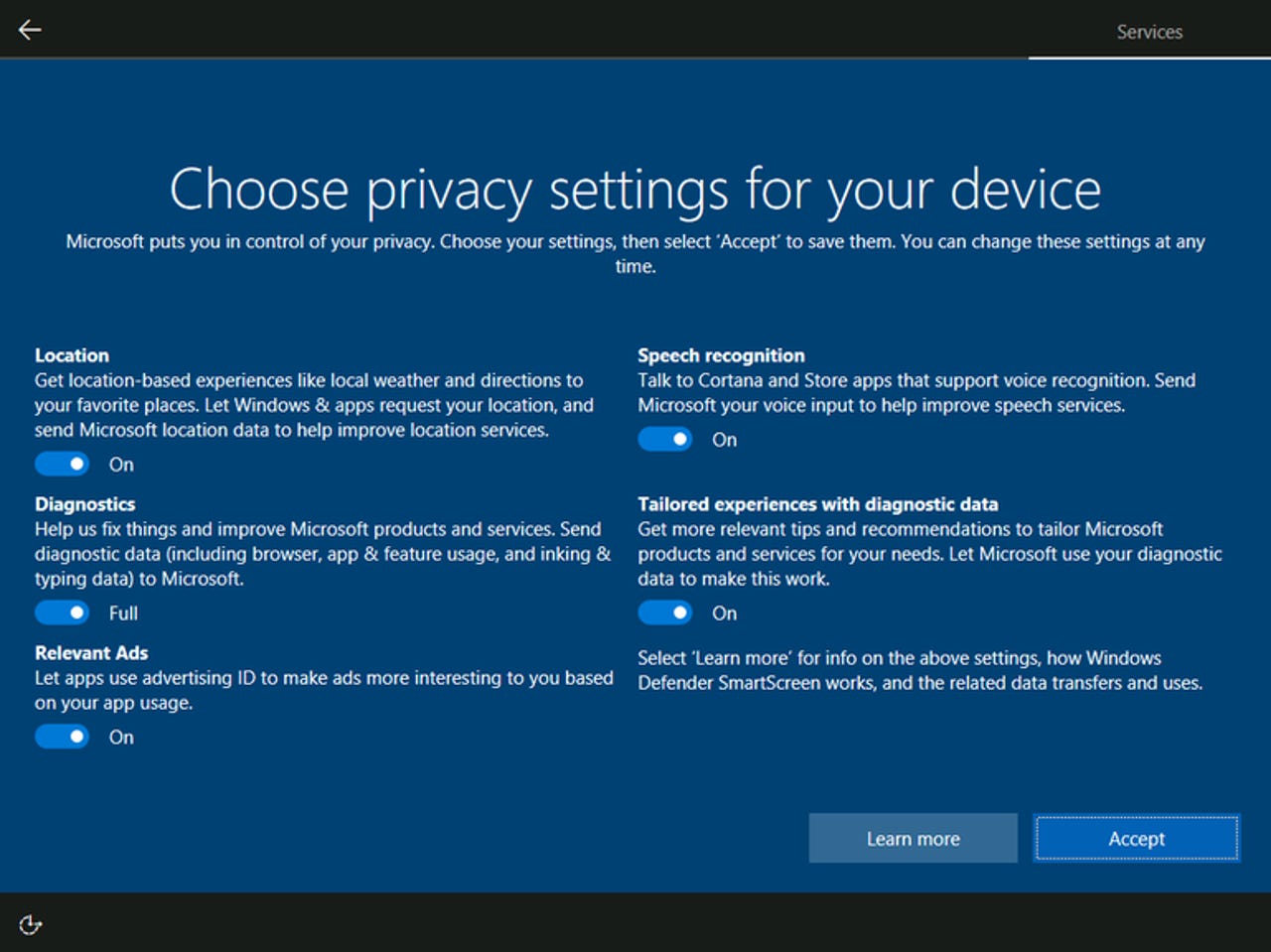Windows 10 privacy: You're happy for us to collect your data, says Microsoft


Microsoft is now highlighting signs that customers do trust it with their data.
After being pummeled by critics and regulators for Windows 10's overzealous personalization efforts, Microsoft says it's received "positive" feedback about privacy-enhancing changes it introduced in the Windows 10 Creators Update.
Windows 10
Those changes, which Microsoft rolled out in Windows 10 in recent months, include an online privacy dashboard and finer controls for location, speech recognition, diagnostics, tips and recommendations, and relevant ads.
It made those changes under the watch of European data-protection authorities, amid the French National Data Protection Commission's (CNIL) year-long probe over Windows 10's "excessive data collection" and tracking browser data without user consent.
CNIL in June lifted its formal notice on Microsoft, noting it had halved the volume of telemetry data collected under the Basic Diagnostic setting, and now provided "clear and precise information" about web tracking for personalizing ads.
With that episode in the rearview, Microsoft is now highlighting signs that customers do trust it with their data and that its responsiveness to customer feedback -- rather than just legal threats from watchdogs -- is driving Windows privacy improvements.
"Feedback we've received about the Creators Update has been positive. This is great news to us because what we hear from you directly impacts the improvements we make," says Marisa Rogers, Microsoft privacy officer for the Windows Devices Group.
Despite the basic Diagnostics setting collecting far less data than before, Rogers points out that 71 percent of customers select the Full option, which sends browser data, app and feature usage, and inking and typing data to Microsoft.
The setting is on Full by default, but can be toggled to Basic.
Also, 23 million people using Microsoft accounts have visited the online privacy dashboard since its launch in January.
Microsoft launched the site as the Swiss data-protection authority dropped its lawsuit over Windows 10 privacy after gaining assurances from Microsoft over data collection and transparency.
But while Windows 10 did run afoul of some national privacy laws, Rogers notes that it's not about to repeat that with the European Union's General Data Protection Regulation (GDPR), with which Microsoft is ensuring Windows 10 will be compliant by the time it takes effect in 2018.
"Fundamentally, the GDPR is about protecting and respecting an individual's privacy rights and Microsoft's enduring commitment to trust is well aligned through the privacy principles that shape the way we build our products and services," she writes.
Rogers also flagged that more privacy changes will appear for those in the Windows Insider Program in the "coming weeks".
More Windows 10 privacy coverage
Windows 10 after two years: Microsoft's mixed report card
French authorities close Windows 10 privacy investigation
French data-protection authorities have officially closed their investigation into privacy violations by Windows 10. The notice praises Microsoft for cutting Windows 10 data collection by half.
Windows 10: New privacy settings still leave users in dark on how Microsoft uses data
Despite Microsoft's efforts to clarify and boost Windows 10 privacy controls, data-protection watchdogs still aren't satisfied.
READ MORE ON WINDOWS 10 FALL CREATORS UPDATE
- Microsoft's newest Windows 10 Fall Creators Update test build adds Mixed Reality tweaks
- Microsoft's latest Windows 10 Fall Creators Update test build adds DPI improvements
- Microsoft won't deliver Timeline as part of Windows 10 Fall Creators Update
- Windows 10 Fall Creators Update: What's coming on the security front
- New Windows 10 Fall Creators Update test build adds new Cortana, dictation, Edge features
- Windows 10 adds end-to-end security to the Fall Creators Update (TechRepublic)
- Microsoft Windows Story Remix headlines Windows 10 Fall Creators Update (CNET)